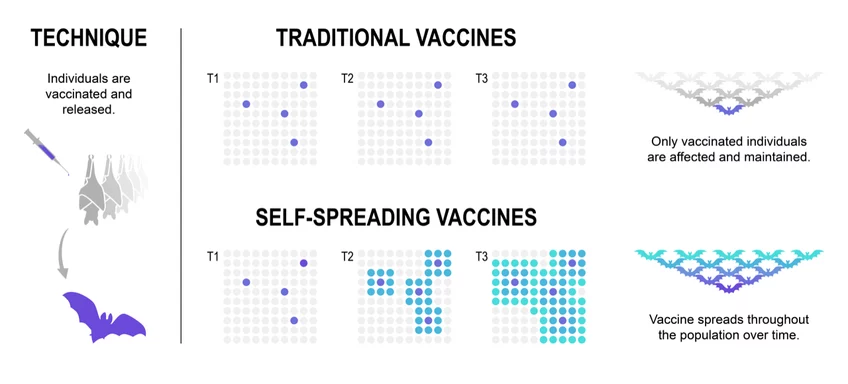Max Planck Society January 6, 2022
An evidence-based norm of virologists is that laboratory modifications of self-spreading viruses are genetically too unstable to be used safely and predictably outside contained facilities. According to an international team of researchers (UK, South Africa, Germany, USA – University of Souhern California) that norm now seems to be challenged. A range of transformational self-spreading applications have been put forward in recent years. In agriculture, for example, self-spreading viruses have been proposed as insecticides, or as vectors to modify planted crops. In health care, self-spreading viruses have been promoted as vaccines. Yet, glossed over by these proposals is that the self-spreading dynamics of a virus repeatedly passing from host-to-host (passaging) give it substantial potential to alter its biological properties once released into the environment. In this article they explore the consequences of this apparent norm erosion in the context of recent proposals to develop self-spreading genetically modified viruses, in wildlife management and in self-spreading vaccines…read more. Open Access TECHNICAL ARTICLE

How a self-spreading vaccine could work in a bat population. Bats directly injected with a self-spreading vaccine… Credit: © Derek Caetano-Anolles